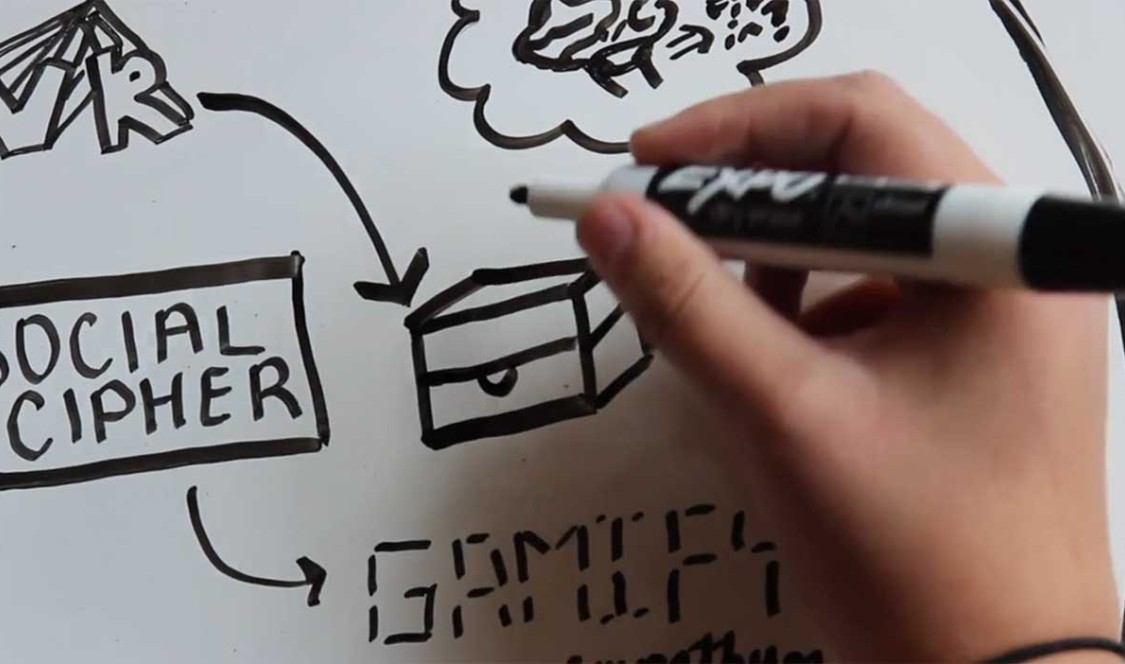Creating engaging and accessible therapy for children on the autism spectrum is a vexing challenge, but five CMC seniors have used their education to craft an innovative new approach: a video game.
Their game, called Social Cipher, virtually recreates social situations so that gamers can better understand emotional reactions and build empathy. Social Cipher recently placed eighth in the National Geographic Chasing Genius: Unlimited Innovation challenge, which had more than 1,000 entrants.
Each member of the Social Cipher team has a personal connection to autism, through working in autism outreach or being on the spectrum themselves. Vanessa Gill ’18, who was diagnosed with Asperger syndrome when she was 14, had considered the possibility of a game-like therapy for some time before bringing it up to her friends – Anastasia Ibrahim ’18, Claire Klein ’18, Amy Wu ’18, and Janine Ivy ’18. To her surprise, they immediately took to the idea and joined her to form the Social Cipher entrepreneurial team.
The five seniors, whose majors are psychology, neuroscience, computer science, and art, “wanted to create a fun and safe space for these kids to learn,” said Ibrahim, “so we are ‘game-ifying’ autism therapy, so they don’t feel like they are going to a lab.”
The project differed from anything the team members had ventured into, but the team started where most of their school projects had: research. They first sought out mentors across various disciplines and input from youth who fell on the autism spectrum.
One youth the team met was Ava, a 7-year-old girl on the autism spectrum who is overwhelmed by background noises but loves Super Mario Brothers. Gill said that meeting Ava put a face to the issue the team wanted to fix: a of lack access to vital emotional therapies.
The team credits much of their progress to the support CMC has provided: From Germma Bulos and the KLI staff to Amy Bibbens in the Dean of Students Office and Melissa Coleman in Keck Science. The Inland Empire Autism Society also offered insight and assistance on the topic of neurodiversity.
“It was a chance to take liberal arts experiences and different disciplines to come together and help people,” Gill said.
While the project is designed to help others, the Social Cipher team has grown as well. Ibrahim’s participation in the venture has allowed her to gain mentoring relationships outside of her neuroscience discipline. Through pitching Social Cipher to possible funders, her public speaking skills have also improved, which she carried over into her academic conference presentations.
“The whole thing has been really empowering, and I hope that it empowers the kids as much as us,” Ibrahim said.
Hoping to build on the momentum of the eighth-place finish with National Geographic, Social Cipher has also added two CMC students as summer interns. Social Cipher plans to finalize their prototype by the end of the semester, then incorporate as a business.
– Juliet Suess

